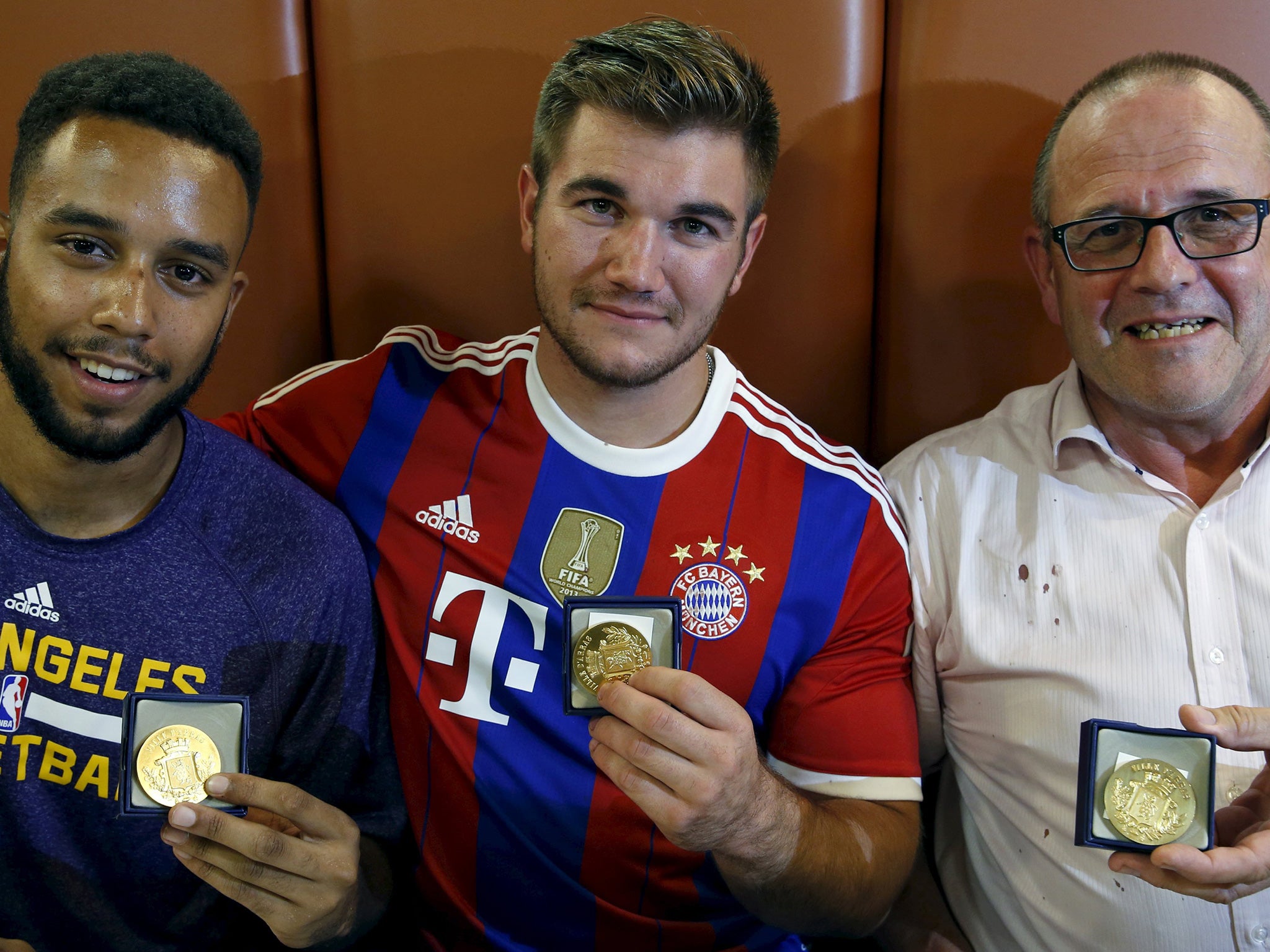France train attack: Three US heroes had swapped carriages because the WiFi was rubbish
The three men had not been in the same carriage as the gunman for the majority of their journey

The three US heroes who tackled and took down a gunman wielding an AK-47 on a French train have admitted they were in the right carriage at the right time because “the WiFi wasn’t so good” elsewhere on the train.
Anthony Sadler, a student and one of the three Americans who subdued suspected gunman Ayoub El-Khazzani, has revealed the trio had originally bought first class tickets for carriage 12, where the attack took place leaving three people injured, but had not been in the right seats until around half an hour before the incident took place.
“We couldn’t find [the carriage] at first,” Saddler said at a news conference, but “we decided to get up because the WiFi wasn’t so good in that car.”
US Air Force Serviceman Spencer Stone, National Guardsman Alek Skarlatos, Sacramento State University student Sadler and British grandfather-of-two Chris Norman brought down El-Khazzani after he was discovered by a passenger trying to use the toilet.
Stone said he “turned around and [the gunman] appeared to have what looked like an AK-47”.
“It looked like it was jammed or wasn’t working and he was trying to discharge the weapon. Alek hit me on the shoulder and said ‘let’s go’.”
The pair tackled 26-year-old El-Khazzani, grabbing the gun out of his hand, seizing another gun and finally a box-cutter that had been used to injure the men. Saddler joined the men in taking on the gunman, who they “beat until he was unconscious”.
Stone said he had just wanted to “survive and for my friends and everyone else on the train to make it”. He praised the actions of a French man on the train who had “started the struggle at first," by intervening when he tried to use the toilet. "I think he deserves a lot of credit," Stone said.
Another French man who attempted to take on the gunman has been named by The Telegraph as Mark Moogalian, a 51-year-old professor at the Sarbonne who was shot in the neck after he tackled El-Khazzani.
British IT specialist Norman also helped the three men overpower the gunman. He said he joined the struggle because he thought he was “probably going to die anyway”.
Norman will receive the Legion d’Honneur from French President Francois Hollande on Monday for his actions during the attack, while the three Americans are reportedly to be made chavaliers, or knights, of the Legion alongside a French citizen.
El-Khezzani boarded in Brussels with what France's interior minister said was an arsenal of weapons that included an automatic pistol, numerous loaded magazines and a box cutter.
El-Khezzani's lawyer said her client does not understand the suspicions, media attention or even that a person was wounded. He claims to have found the gun in a park "by chance" and is said to describe himself as a homeless man.
For him, there were no gunshots fired, Sophie David said. "He planned to hold up the train, the shoot out the window and jump out to escape,"
“He is dumbfounded that his action is being characterised as terrorism,” she said.
But the gunman has reportedly been on the radar of European police services for the past year.
Spanish newspaper El Pais reported that Spanish law enforcement told their French counterparts in March last year that El-Khazzani had a “relationship with radical Islam,” while officials told the Associated Press he had been on the radar of authorities in France, Belgium and Spain.
Additional reporting by agencies
Subscribe to Independent Premium to bookmark this article
Want to bookmark your favourite articles and stories to read or reference later? Start your Independent Premium subscription today.

Join our commenting forum
Join thought-provoking conversations, follow other Independent readers and see their replies